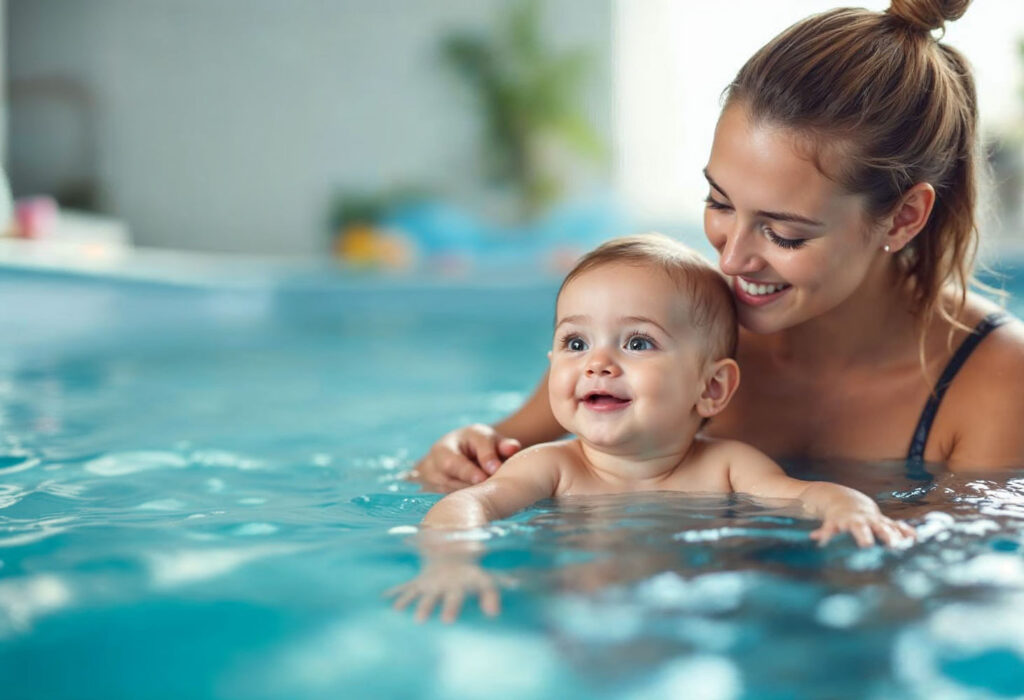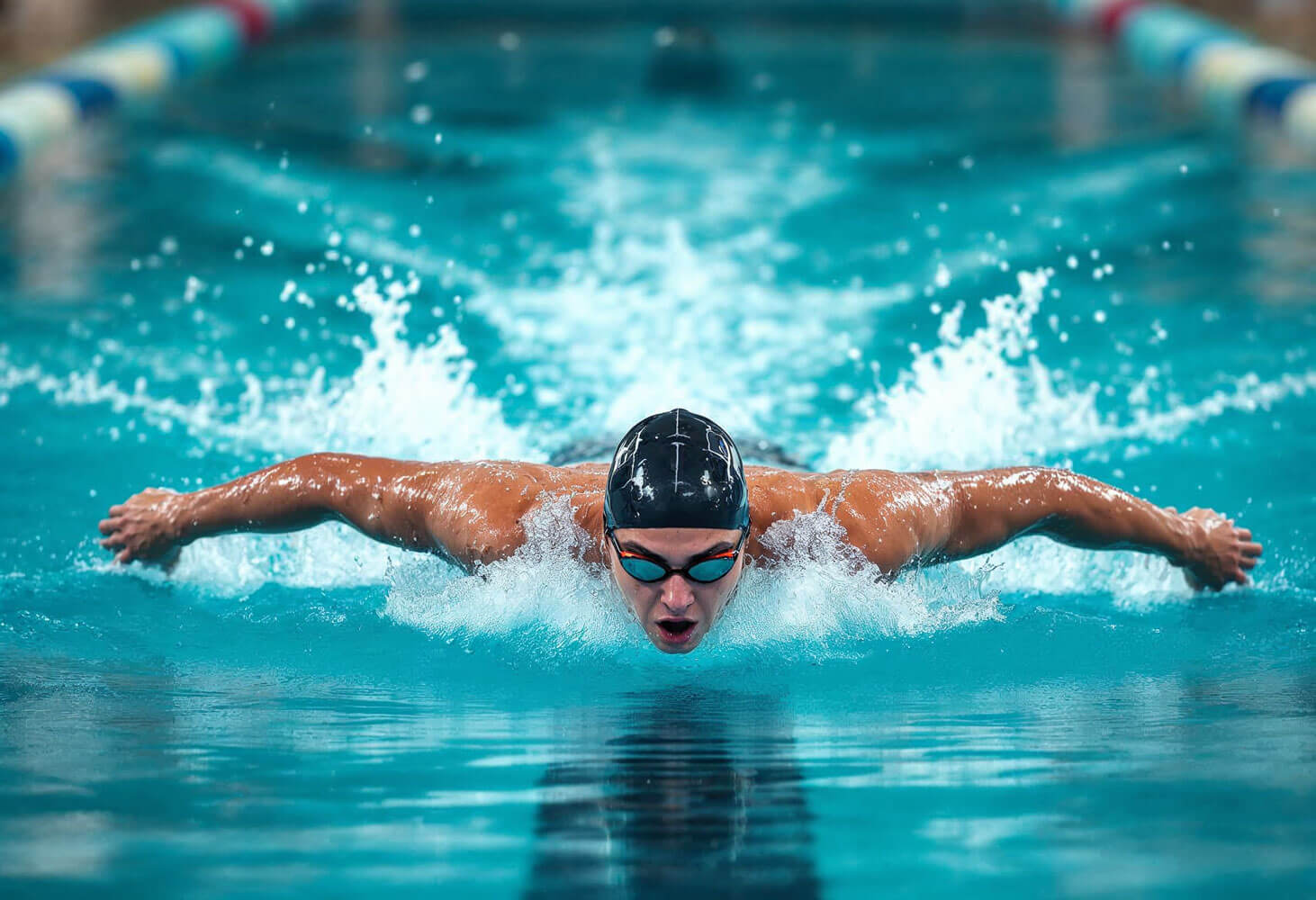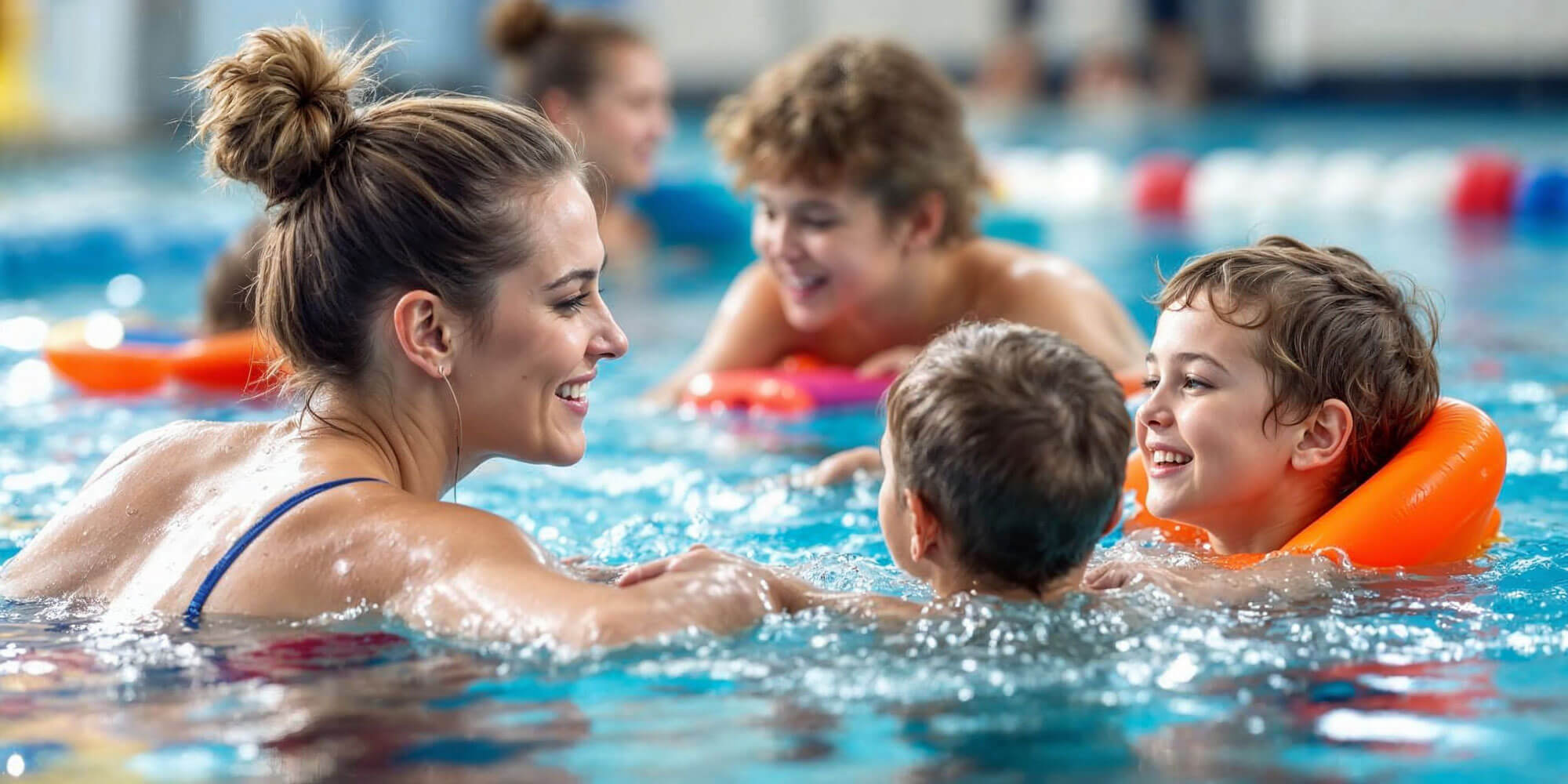Infant swim lessons are more than just an adorable activity, they’re a critical first step in promoting water safety from an early age. By introducing babies to the water in a safe, structured setting, these lessons help build confidence, coordination, and comfort.
At Piranha, we believe that infant swim lessons lay the foundation for safer swimming habits and long-term water awareness.
The Importance of Early Swim Education
Starting swim education early can make a lasting difference in a child’s relationship with water. Infant swim lessons are more than just playful splashes, they build essential life skills, promote safety, and support physical and emotional development.
In this section, we explore how consistent exposure, structured routines, and early encouragement help shape strong, confident swimmers from the start.
The Role of Consistency in Early Development
Consistency is key in any learning process, and infant swim lessons are no exception. Regular lessons help reinforce:
Muscle memory and coordination
Familiarity with water movement and resistance
Trust between baby, parent, and instructor
Reduced anxiety or hesitation in the water
The more consistent the routine, the faster infants adapt and progress.
How Early Exposure Builds Water Confidence
Introducing babies to water early helps them develop comfort before fear or hesitation can form. With gentle instruction and playful interaction, early exposure encourages:
Natural movement in water
Reduced sensitivity to splashing or submersion
A strong foundation of trust and curiosity
Infant swim lessons allow children to grow up viewing water as a familiar and enjoyable environment.
How Infant Swim Lessons Promote Water Safety
Water safety begins long before a child learns how to swim independently. Infant swimming lessons teach babies how to react in water and develop habits that support lifelong safety.
This section explores the life-saving skills and safety habits that structured infant programs offer.
Teaching Basic Water Survival Skills
While infants may not fully swim on their own, they can learn survival responses such as:
Holding onto the wall or edge
Floating on their back
Turning to face the poolside
Kicking or paddling toward an adult
These actions, practiced regularly, can increase a baby’s chance of responding appropriately in unexpected water situations.
Reducing the Risk of Drowning Accidents
Drowning is one of the leading causes of injury-related death in children under five. Swimming lessons for infants play a preventive role by:
Teaching water awareness at an early age
Improving a child’s response time and body control in water
Providing parents with supervision tools and emergency tips
Lessons do not replace supervision, but they greatly reduce risk through preparedness.
Encouraging Safe Behaviour Around Pools
Safety isn’t only about swimming, it’s also about behavior. Through repetition and parent involvement, infant swim lessons help instill:
Respect for water boundaries
Awareness of pool rules
Understanding of when and how to enter the water safely
Listening skills that carry over to other safety-related environments
These lessons carry into toddlerhood and beyond.
Key Benefits of Teaching Babies to Swim
The value of infant swimming lessons extends beyond safety. Babies benefit physically, emotionally, and socially from regular aquatic activity. This section highlights the broader impact of early swim education on child development.
Physical and Cognitive Development Through Swimming
Swimming engages multiple muscle groups and stimulates brain activity. Benefits include:
Improved balance and coordination
Enhanced motor skill development
Early understanding of cause and effect (e.g., kicking causes motion)
Strengthened respiratory and cardiovascular systems
The water also provides sensory stimulation that supports neurological growth.
Strengthening Parent-Baby Bonding
Infant swim lessons are often a shared experience between baby and caregiver, offering:
Skin-to-skin contact in a calm environment
Communication through touch, eye contact, and voice
Trust-building through repeated water activities
Shared progress that boosts emotional bonding
This bonding contributes to both swim success and emotional wellbeing.
Building Independence and Resilience Early On
Water encourages infants to move, explore, and make decisions independently. Through repetition and gentle guidance, babies begin to:
Gain confidence in their own movements
Learn to recover from slips or changes in direction
Feel pride in small achievements like splashing, floating, or kicking alone
These skills contribute to emotional resilience and problem-solving in and out of the pool.
Piranha’s Approach to Infant Swim Lessons
At Piranha, our infant swim lessons in Amman are as nurturing as they are educational. Our programs are built around the child’s emotional and developmental needs, while also prioritizing safety and skill-building.
Our Child-Centered, Gentle Methodology
We follow a child-centered approach that emphasizes:
Respect for each child’s pace and comfort level
Play-based learning that keeps lessons engaging
Non-forceful introduction to submersion or floating
Celebrating small milestones to build confidence
Every lesson is designed to support the child, not pressure them.
Certified Instructors Specializing in Infant Swimming
Our instructors are trained specifically to teach infants and toddlers. Each member of our team:
Holds relevant swim certifications
Understands child development and aquatic psychology
Knows how to engage both babies and caregivers during lessons
Adapts teaching techniques based on each child’s responses
Their expertise ensures safety, learning, and enjoyment at every stage.
Creating a Safe and Fun Learning Environment
Infant swim lessons at Piranha take place in settings designed for comfort and safety. Our pools are:
Heated to a baby-friendly temperature
Clean, shallow, and visually calm
Equipped with safety tools and age-appropriate equipment
Managed with small class sizes for focused attention
We also encourage caregiver participation, creating a supportive environment where babies feel secure while they explore and grow.








